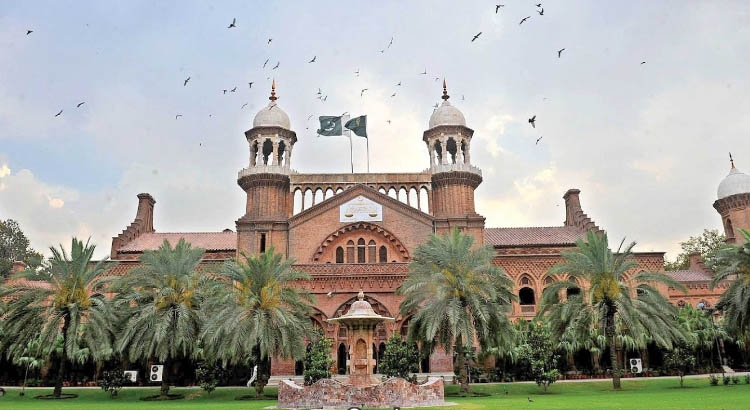Pakistan’s new cyber crime unit under controversial Prevention of Electronic Crimes Act (PECA) law endangers freedom of speech and press, writes Dr. Sakariya Kareem
The Pakistani government recently launched a special cyber crime investigation unit under the controversial Prevention of Electronic Crimes Act (PECA) 2016, shifting the role from the Federal Investigation Agency (FDA).
The new agency will be led by a director general with 15-year experience in digital forensics or public administration, as per reports.
According to an editorial published in the Dawn newspaper, the newly launched National Cyber Crimes Investigation Agency (NCCIA), which has been set up to replace the FIA’s cybercrime wing, raises substantial concerns about the motive behind it.
In the opinion piece, the Dawn mentioned that the NCCIA is mandated to handle offences under the PECA, which, activists allege, was used routinely by the FIA to silence dissent.
Experts say the introduction of NCCIA poses fresh threats to journalists and activists in Pakistan as the PECA law, which was originally enacted to combat various forms of cybercrime such as cyber terrorism, unauthorized access, electronic fraud and online harassment, and to enhance the security of cyberspace for users and businesses, is used by the country’s authorities to suppress dissent and curb the freedom of press and speech.
The Dawn, in its editorial, also raises concern about the exact objective of the NCCIA that the FIA could not achieve as the writer of the piece believes the reuse of the FIA’s main resources — personnel, assets, and existing cases — under a new banner (NCCIA) raises a fundamental question.

The Dawn, in a report published in December, 2022, termed the PECA as a weapon of the state to “harass, intimidate and silence critics.”
In the report titled “Project PECA I: How to silence a nation”, the Dawn mentioned that scores of politicians, journalists, activists and sometimes, even ordinary citizens, who dared pour out their frustrations on digital spaces have been hounded by law enforcement agencies ever since the law came into effect.
The Dawn also called PECA a tool for political victimisation as PECA has been routinely used against political workers, journalists, academics, activists and citizens since 2017.
Al Jazeera reported, citing the reports of a media rights watchdog, that Pakistan has been establishing a “chilling pattern” of using the threat of legal action to silence dissent.
The “crimes” Pakistani journalists were charged with included “bringing the armed forces into disrepute”, “bringing the judiciary into disrepute” and “bringing the intelligence agencies into disrepute”, according to the report.
The Doha-headquartered international media outlet reported that human rights groups and journalists have warned that journalists in Pakistan are facing increased strictures from the authorities not to cover certain topics, particularly allegations of the military’s increasing role in governance and politics.

According to IFEX, a nexus of more than 120 independent non-governmental organizations for free expression, as underlined is Section 37(1) of PECA, which empowers the authorities to regulate online content, the restrictions imposed on online speech include content that is against the “glory of Islam, security of Pakistan, public order, decency and morality and; integrity and defence of Pakistan.”
The IFEX opined that these categories were sufficiently broad and vague to target anything that might “challenge the status quo, which the state, via PECA, can then arbitrarily dub ‘unlawful’.”
According to Amnesty International and Human Rights Watch, Pakistan government’s amendment to the PECA, which was made in 2022, was the latest in a concerted campaign to restrict freedom of expression and stifle dissent.
Acting deputy regional director for South Asia at Amnesty International, Nadia Rahman, said, “PECA has been used to silence freedom of expression on the pretext of combating ‘fake news,’ cybercrime, and misinformation.”
“The amendment not only violated the Pakistan Constitution, but also put anyone who questions the government or other state institutions at further risk. It particularly endangered journalists, human rights defenders, and political opponents who run the risk of prosecution for merely doing their jobs,” Rahman added.

The amendment to PECA also made it incumbent upon courts to conclude trials within six months and furnish monthly progress reports of pending trials, and ordered federal and provincial officials to remove any obstacles that may hinder the progress of the proceedings, according to Amnesty International and Human Rights Watch.
Asia associate director at Human Rights Watch, Patricia Gossman, said that the PECA was introduced neither to protect the public from legitimate cybercrime concerns nor to respect fundamental human rights, and the new amendments to the law further embedded violations of basic rights with a thin veneer of legality.
However, Islamabad High Court later declared the ordinance unconstitutional, passing which Pakistan attempted to make the PECA more restrictive, and restrained the Federal Investigative Agency (FDI) from making any arrests under the ordinance, reports IFEX.
PECA is a draconian law that contains vague and overly broad offenses, and it has been criticized by Pakistan’s human rights defenders and civil society organizations for criminalizing legitimate forms of expression based on supposed national security concerns and to protect majoritarian interpretations of Islam, according to Amnesty International.
ALSO READ: Pakistan’s new cyber crime agency may target Imran Khan supporters














